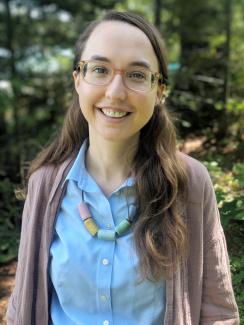
Affiliated Faculty
Education
PhD, Public Policy, Massachusetts Institute of Technology
MS, Political Science, Massachusetts Institute of Technology
MPA in Environmental Science & Policy, Columbia University
BSc, Psychology and East Asian Studies, University of Toronto
Bio
Leah Stokes is the Anton Vonk Associate Professor of Environmental Politics in the Department of Political Science and is also affiliated with the Bren School of Environmental Science & Management and the Environmental Studies Department at the University of California, Santa Barbara (UCSB). She works on energy, climate and environmental politics, with work published in journals such as the American Journal of Political Science, Nature Energy, and Energy Policy. Within American Politics, her work focuses on representation and public opinion; voting behavior; and public policy, particularly at the state level. Within environmental politics, Stokes researches climate change, renewable energy, water and chemicals policy. Her book, Short Circuiting Policy (https://www.leahstokes.com/book) , examines the role that utilities have played in promoting climate denial and rolling back clean energy laws. It was named the Best Energy Book of 2020 by the American Energy Society and listed as a top 5 climate book from 2020 by The New York Times. Stokes is quoted frequently in national media, has written for top outlets including The New York Times, and hosts a popular climate podcast, “A Matter of Degrees.”
Stokes completed her PhD in Public Policy in the Department of Urban Studies and Planning’s Environmental Policy & Planning group at the Massachusetts Institute of Technology (MIT). She also received a masters from MIT's Political Science Department and, before that, completed an MPA in Environmental Science & Policy at the School of International & Public Affairs (SIPA) and the Earth Institute at Columbia University. She earned a BSc in Psychology and East Asian Studies from the University of Toronto.